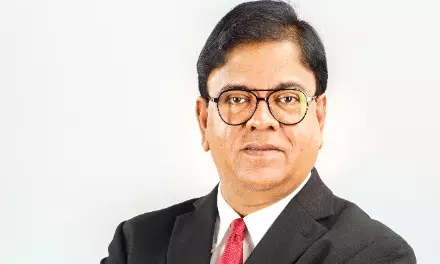
New Delhi, Sept. 17 -- For most of us, from our earliest days at school, we have been led to believe that marks define us. Report cards quietly transform into verdicts on intelligence, potential and even character! A percentage point here or there can decide which college accepts us, which scholarships we receive, and in some cases, which doors of opportunity remain closed forever. For many, grades and ranks become not just a measure of performance but a mirror of self-worth.
But let us pause and ask, do marks truly capture capability? Or do they merely reflect performance at a fixed moment in space and time in a rigid system? The truth is uncomfortable: marks measure memory, exam temperament and conformity more than creativity, resilience, or originality.
In today's rapidly shifting world, where industries vanish within a decade and skills expire in just a few years, clinging to your academic credentials alone in defining your future is foolhardy, to say the least. What sustains careers and lives today is not the ability to reproduce answers but the ability to adapt, imagine, and reinvent!
While marks may fail to measure worth, stress quietly, but most certainly, erodes it. Anxiety around grades, parental expectations, and peer comparisons has become a silent epidemic. We spoke about this at length in our column last week. Students chase numbers as if they were tickets to dignity-- while their mental health deteriorates in the shadows. Stress narrows the mind.
Ironically, many "toppers" crumble when real-world uncertainty confronts them, while those branded as "average" often go on to launch startups, lead global teams, or create art that moves millions. Stress doesn't just hurt; it blinds us to life's broader canvas.
Herein lies a paradox: failure often teaches us more than success! Success reinforces what we already know; failure forces us to question, adapt, and grow. Every rejection fuels reinvention. Thomas Edison once remarked that he hadn't failed 10,000 times, but had discovered 10,000 ways that a light bulb would not work. Closer home, Dr APJ Abdul Kalam failed in his dream of becoming a fighter pilot but went on to become India's "Missile Man" and one of its most beloved presidents. These stories remind us that failure is not the opposite of success: often, it's the foundation.
And yet, as a society, we glorify success while erasing the lessons of failure. We place toppers on billboards and full-page newspaper advertisements but rarely honour those who found new paths after stumbling. In doing so, we send students a dangerous message: play safe, fear experimentation, define yourself by applause rather than growth.
Imagine if universities and employers began to ask not just about grades but about resilience. What was the hardest challenge you overcame? What did you learn from your biggest failure? When did you demonstrate curiosity, adaptability or teamwork? These questions reveal far more about a person's potential than marks ever could. Today's workplaces demand creativity, emotional intelligence, and adaptability, the very qualities that a mark-obsessed, stress-fuelled culture often suppresses.
If we truly wish to prepare our young people for life, we must redefine what success means. Mental health should be treated as an essential part of educational infrastructure. Just as we build libraries and laboratories, we must create spaces for counsellors, peer support groups, and stress management programmes. Failure stories, too, must be celebrated as much as success stories. Alumni should feel encouraged to speak not only of their placements but also of their detours, experiments and setbacks, so that students understand that life is not a straight line but a curve of constant learning.
At Sister Nivedita University (SNU), we encourage students to treat marks as milestones, not endpoints. Through experiential learning, entrepreneurship, and interdisciplinary exploration, we try to prepare graduates who leave not just with degrees but with confidence and versatility.
Parents, as foundational stakeholders, can help immensely by changing the questions they ask. Instead of measuring their child's progress with ranks and percentiles, they might ask, "What new thing did you try this year?" That small shift in parental attitudes could open big doors for their confidence! And students themselves must be encouraged to build second skills, abilities that endure long after marks fade. Coding, design, communication, public speaking, or critical thinking: these are the currencies of resilience in uncertain times.
Marks may open doors, but character decides how far we go once inside. Stress, if unchecked, slams those doors shut. Failure, if embraced positively, teaches us to build new ones altogether. Education, after all, is not about passing exams. It is about preparing for life!
The author is the Vice-Chancellor of Sister Nivedita University and Group CEO, Techno India Group. A visionary leader, he is shaping future-ready institutions and inspiring students to lead with purpose
Published by HT Digital Content Services with permission from Millennium Post.
